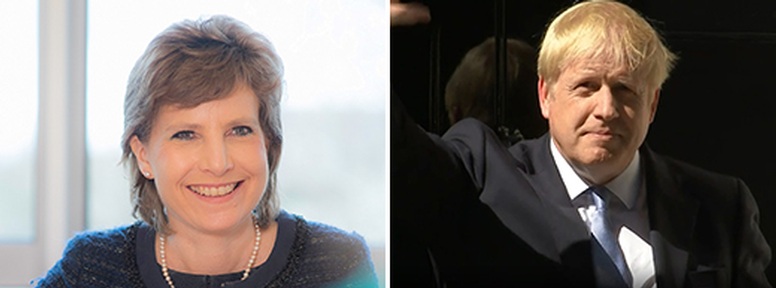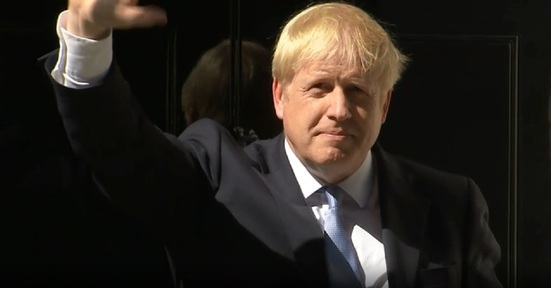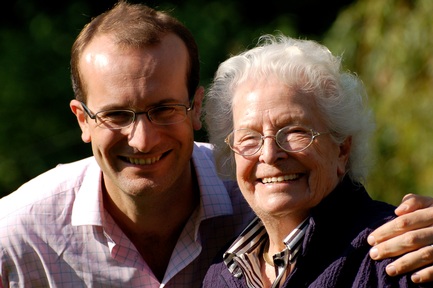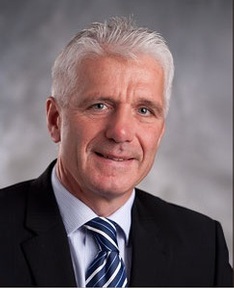Deal or No deal: Boris Johnson must protect care workforce says home care chief
Jane Townson only became chief executive of the United Kingdom Homecare Association (UKHCA) in June but she already has a list of demands for Prime Minister Boris Johnson including protecting care workers beyond Brexit.

She represents over 2,000 home care providers who have told her workforce is their biggest worry.
“Brexit has already had a significant effect on the home care sector", the chief executive told homecare.co.uk.
"What we’ve seen is a fall in people applying for jobs. We’ve seen people going back home because they’re not sure whether they’re going to be allowed to stay or whether they even want to stay, given the rhetoric.”
With Mr Johnson talking up a no-deal Brexit, Ms Townson wants care workers put on the government’s Shortage Occupation List (SOL), “regardless of the way we exit from the EU”.
She argues that while care workers can be low paid, they are highly skilled.
If Boris Johnson’s post-Brexit migration policy settles on high salary thresholds for skilled workers then the £30,000 threshold and required academic qualifications will be ‘unrealistic’ for most home care bosses.
She believes this will leave social care unable to respond to demands from Britain’s ageing population.
“Historically, we’ve seen a large number of care staff coming from countries like Poland. They’re all now going to Germany. Germany has quite an active advertising campaign luring them in. ‘Don’t go to Britain because you won’t be welcome there, come to us instead’.”
A former chief executive at Somerset Care Group, Ms Townson began her career in global roles in research and development at ICI, AstraZeneca and Syngenta and said the “National Living Wage has levelled the playing field” when it comes to care work.
“People can get jobs for the same money in retail or hotels and it’s in many ways easier work. But how can we attract different parts of the population to work in care? Can we encourage more men, older people and more young people as well?”
In her letter to Prime Minister Boris Johnson, she wrote: ‘We want older and disabled people to receive high quality social care in their own homes’ but the social care sector is ‘losing candidates to competing business sectors’.
‘While employers need to concentrate on recruiting and training from the domestic workforce” she says making that happen will require significant investment from local authorities and the NHS.
She warned Mr Johnson: ‘That investment will be urgently needed should recruitment challenges become exacerbated by the UK leaving the EU.’
Don’t bid for contracts below £18.93 per hour
The second major issue worrying UKHCA members is the “financial sustainability” of private pay market as well as the state-funded home care market.
"The costs of running a home care business are an issue for all providers.
“The majority of councils across the country unfortunately are still not paying the minimum price for home care that you need to ensure that you can be compliant with national minimum wage and keep your business afloat.”
The UKHCA has calculated the minimum price for home care is £18.93 per hour (for April 2019- March 2020) based on compliance with National Minimum Wage Regulations.
But she says “That’s only allowing for a profit of 55p and the minimal costs of running the business”. To avoid subsidising councils, UKHCA’s chief executive recommends home care providers “do not bid for contracts that are below the minimum price for homecare”.
Thousand-fold rise in CQC fees are ‘unfair’
Another big issue for the UKHCA’s chief executive is regulation including the Care Quality Commission’s (CQC) fees.
After the CQC was told by the government it must become self-funding, regulatory fees have become a thorny issue with costs passed onto providers.
“The regulatory fees are unfair. Some home care providers are seeing a thousand-fold increase in fees over the last four years. One of our members was paying £60,000 a year to CQC and now they are paying £370,000 a year for the privilege of being regulated.”
As a result some providers are no longer agreeing to help people who only want a few hours of care a week because they get charged by CQC per client.
The chief executive thinks it would be fairer for the CQC to charge by inspection “because otherwise the good providers are effectively subsidizing the poor providers.” She says ‘good’ providers get less for their money because only get inspected every two and a half years but bad providers get inspected every year at least.
‘One-man band unregulated PAs’
The percentage of UKHCA’s members achieving outstanding ratings from the CQC is currently eight per cent - that’s twice the national average for home care providers. But regulation issues remain on the UKHCA’s radar, including the type of providers regulated and what they are regulated for.
Some 70 per cent of the home care market is state-funded (including people who receive direct payments). And there has been a rise of personal assistants and micro providers in the market who don’t have to be registered or regulated.
“Nobody is keeping track of everybody that is buying their own home care. There’s one-man band unregulated personal assistants and micro providers out there.”
’What does Mrs Jones want, think and feel?’
The chief executive says “Commissioning practice is one of the biggest factors affecting quality in home care” and wants Mr Johnson’s government to “regulate that as well.”
Ms Townson says no one’s checking to see that councils are meeting the 2014 Care Act’s requirements.
Councils are not funding people with low to moderate needs and she calls this “very short-sighted because people go downhill very quickly” if they don’t get help and “end up in hospital and residential care which costs society more.”

She believes it’s time for independent oversight of commissioning of adult social care by councils - just as Ofsted oversees children’s services. She thinks this oversight should done by the CQC.
In her letter to Boris Johnson, she wrote ‘That oversight is necessary if we are to be confident councils will commission sufficient high-quality homecare in future'.
Ms Townson says agencies are just given instructions by councils like ‘You’re going to see Mrs Jones and you’ll do this and this’, but she argues “Well, what does Mrs Jones want, think and feel?”
Ms Townson would “like to see an end to commissioning of home care lasting 15 minutes” and thinks 45 minutes to one hour is optimum for good quality care.
With controversy over zero-hour contracts also hitting the headlines, she warns “A lot of people are doing this work with other responsibilities like childcare.
"A large number of providers offer a range of different contracts types to their staff and it’s interesting that a large number of staff want the flexibility of zero hour contracts and won’t take guaranteed hour contracts, even when they’re offered.”
AI is ‘like running before you can walk’
Caroline Dinenage MP, who kept her job as Care Minister after Mr Johnson’s government reshuffle, is encouraging the care sector to adopt technology like artificial intelligence. Ms Townson says embracing AI is “like running before you can walk”.
“We’ve still got a large proportion of the care sector using paper records. So until we’ve got the whole sector digitised it’s a bit pointless talking about AI frankly."
And she is clear robots can not replace much-needed care workers.
“With one robot costing £25,000 she thinks “more interesting” is the technology that can monitor people’s health like blood pressure, sleep and how the data is analysed and triggers alerts.
On day one of his premiership, Mr Johnson promised to “fix social care”. Ms Townson says “I’d love to think that he will but so far the Conservative government hasn’t had a great track record”.
But the UKHCA’s chief executive wants him to work with care leaders and publish the social care green paper. “I don’t think in itself it’s going to contain anything terribly radical” but when it comes to funding and caring for older and disabled people she hopes it will “start a proper discussion”.
Latest Profiles News
 01-Aug-19
Deal or No deal: Boris Johnson must protect care workforce says home care chief
01-Aug-19
Deal or No deal: Boris Johnson must protect care workforce says home care chief
 04-Dec-15
Former John Lewis director reveals why his home care company is employee owned
04-Dec-15
Former John Lewis director reveals why his home care company is employee owned
 17-Jul-15
Being a home care worker gives you the opportunity 'to make a real difference to someone’s life'
17-Jul-15
Being a home care worker gives you the opportunity 'to make a real difference to someone’s life'
 04-Mar-15
Home Instead boss calls for 'radical change' saying social care and health must be integrated
04-Mar-15
Home Instead boss calls for 'radical change' saying social care and health must be integrated
 02-Dec-14
Profile: ‘We do not do 15-minute visits’ says managing director of Right at Home
02-Dec-14
Profile: ‘We do not do 15-minute visits’ says managing director of Right at Home